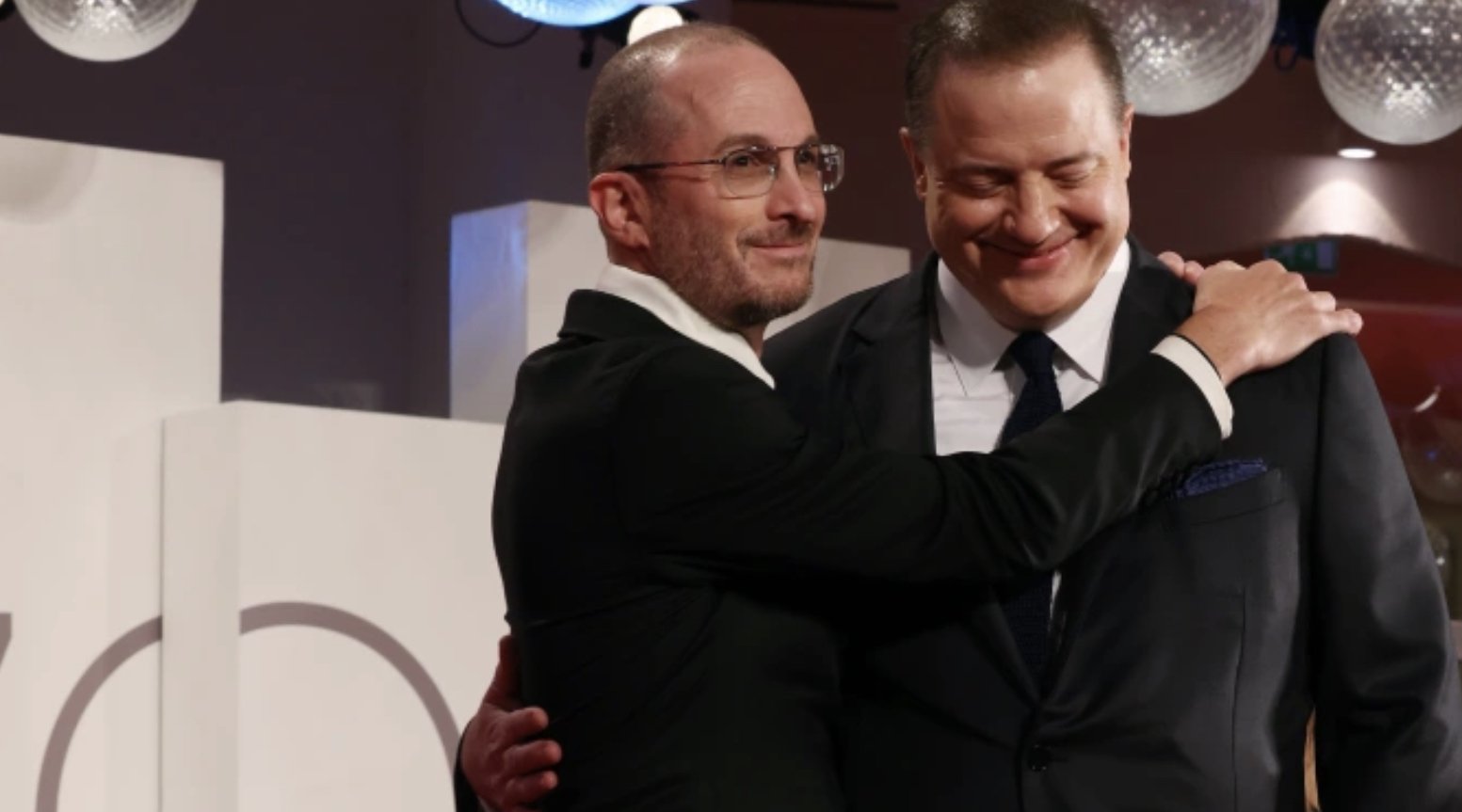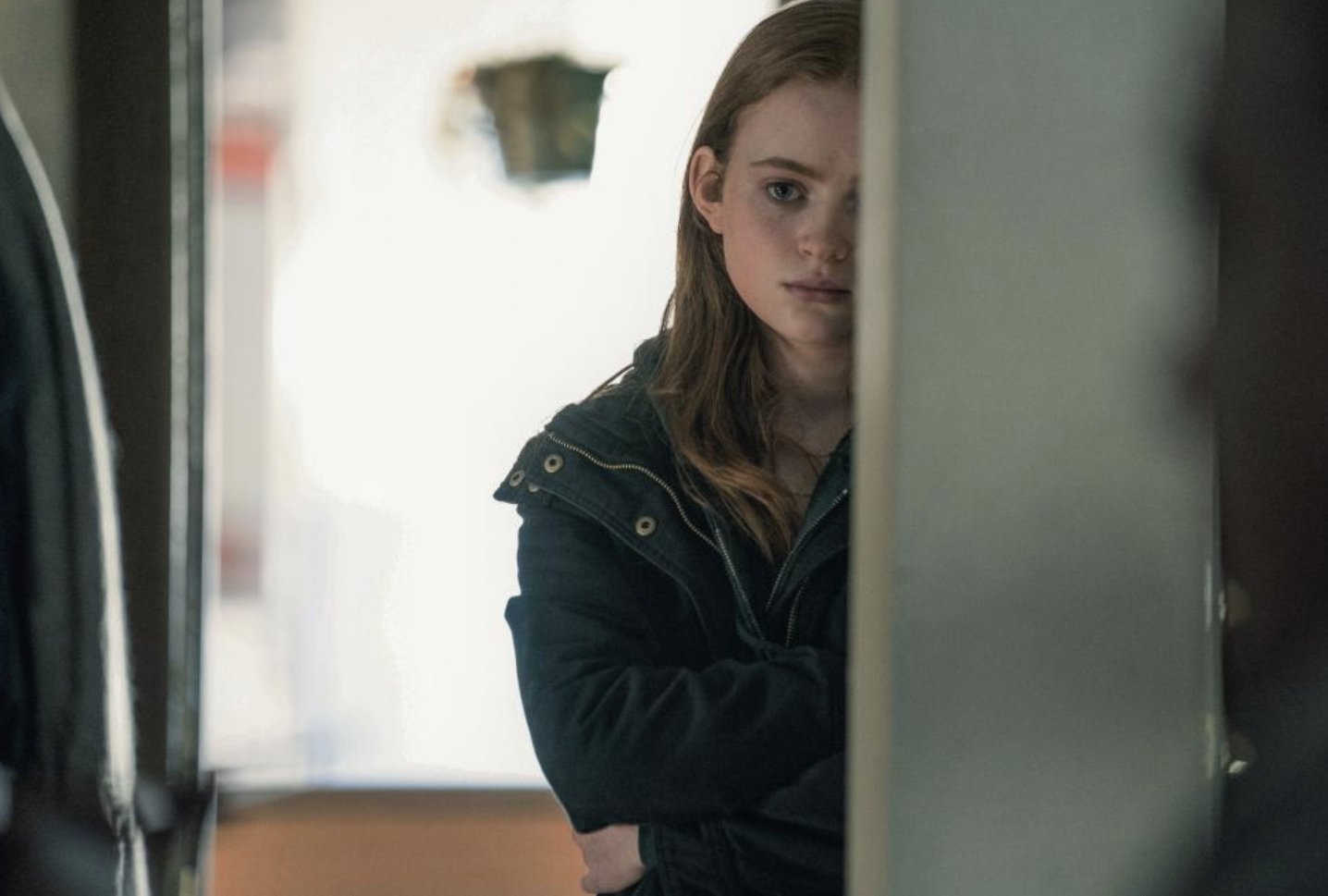The Whale (dir. Darren Aronofsky, 2022) — Review
“And I felt saddest of all,” goes the refrain of The Whale, “when I read the boring chapters that were only descriptions of whales, because I knew that the author was just trying to save us from his own sad story… This book made me think about my own life”.
Darren Aronofsky’s ruthlessly engineered meditation on guilt bashes its audience over the head with this mantra, juddering out again and again with the melodramatic heft of one of the protagonist’s tortured, 600-pound footsteps. The Whale, adapted by Samuel D. Hunter from his play of the same name, groans under the weight of its own meta-fictional blubber. Even before its release, the vaunted comeback vehicle for Brendan Fraser has grown engorged with imagery of ovations on the festival circuit, teary-eyed photos of its star, the general buzz of a ‘serious’, nay, meaty role.
Our leading man, Charlie (Fraser), is indisputably meaty: aside from the mythical fatsuit — the sure sign of a bold artistic risk in this day and age — another key physical character in this role is Fraser’s actual weight. His actual hairline. His actual transformation, not just into a fictional pariah, but into a notorious Hollywood ‘where are they now’, following the Tarzan heyday. Fraser is playing a much higher-stakes public role than that of Charlie, the reclusive English professor who lectures with his Zoom camera off; he is a figure for all sorts of real-life public guilt and emotional confusion, having transformed from objectified sexpot to some kind of normal-sized Hollywood martyr. The Whale does force you to “think about your own life”, but the playwright’s intended reflection on isolation — and the ultimate, positive hope of human connection at the end of it — gets a little twisted in the workings of the Tinseltown machine.
We first meet Charlie as a black square at the centre of a Zoom call, the camera pulling out with funereal gravitas, underpinned by the film’s trademark soundscape of stately orchestral music and resonant sloshing. This will be a key tactic for Aronofsky over the next two hours: theatrical, distracting contrasts, flinging the viewer between laughter and repulsion in a successful effort to catch them with their pants down — as Charlie is in the first scene. In this deliberately claustrophobic set-piece, Charlie, beached in his bungalow, reads and re-reads a book review of Moby Dick, his only sense of autonomous connection while visitors pop by: Elder Thomas (Ty Simpkins), a missionary who stumbles in on Charlie whacking it to gay porn and nearly dying in the process; Liz (Hong Chau), a nurse and Charlie’s best friend; and, crucially, his estranged teenage daughter Ellie (Sadie Sink). Exploring the question of Charlie’s appearance, and his food addiction, Aronofsky sets about attempting to inflict the same underlying sense of shame on his audience to bring them closer to an outwardly extreme or deviant character.
Hunter’s screenplay is richly textured in its exploration of pain: the circumstances which drove Charlie to his essentially inhuman state, and which knit him to the other characters, are explored through a universal question. “Tell me the truth,” Charlie says, more than once. “Do you find me disgusting?” This is the uncomfortable and effective core of a narrative in which various forms of the ‘disgusting’ unravel through superficially different characters. Sadie Sink, Hong Chau and Ty Simpson, as Charlie’s visitors, make expert inroads into all sorts of American afflictions beyond obesity, from its fractious relationship with religion and sexuality to healthcare and education. Fraser, too, plays both tear-jerking and comic episodes with aplomb, always game to heave from mystical sea-metaphor to rumbling wheezes in two shakes of an empty Cheeto packet.
But it’s hard to shake the lingering sensation that Hunter’s intended message — his stated, sincere belief in a happy ending — grates with the mechanics of the Hollywood version.
Watching the endless churn of online media coverage before the film’s release in cinemas — featuring the star “overwhelmed” or “moved to tears”, or simply titled “Brendan Fraser cries” — it seems that the message of Hunter’s text has been overshadowed by the physicality of spectacle. An air of the circus sideshow hangs uncomfortably over the scenes of Charlie binge-eating, recorded in skin-crawling surround sound; no amount of dramatic music can fully ennoble the voyeuristic visual emphasis on his size. Heartwarming and agile as Fraser’s performance may be, it differs from other thespian transformations- from the likes of Renee Zellweger and Christian Bale- in that his role as an overweight, depressive recluse hits a little close to home.
In the screenplay, Charlie’s fat initially seems to to act as a physical representation of his own brokenness, but equally as something which catalyzes self-reflection in the audience: something we can eventually look past. One suspects that Brendan Fraser will not be able to detach himself from the crushing weight of society’s judgement — and its own guilt over that inability to look away — quite so easily.




